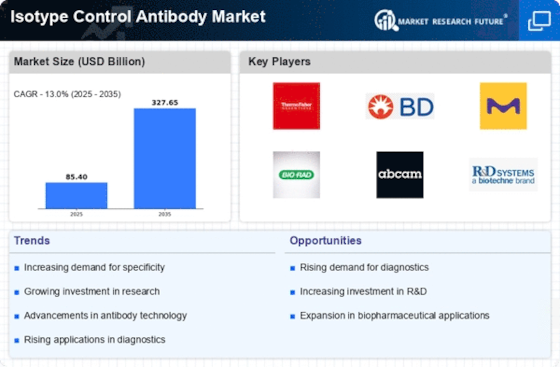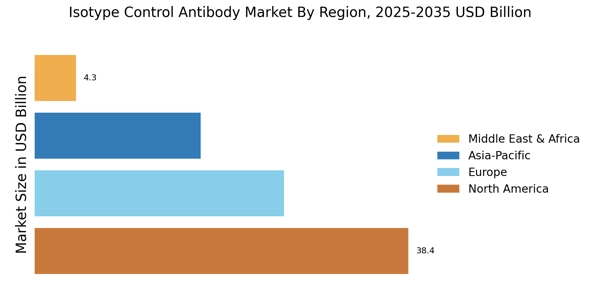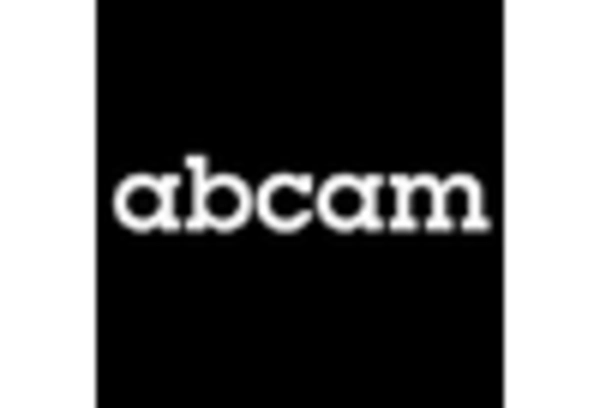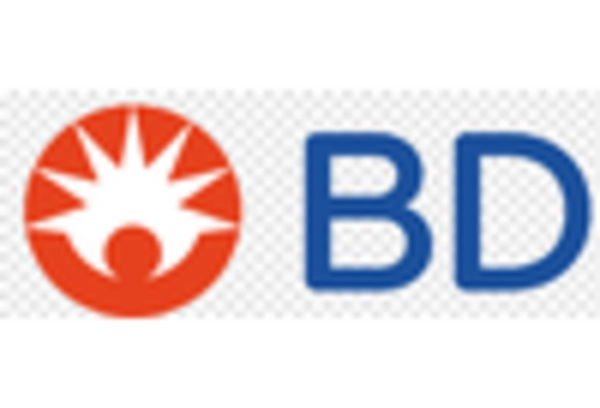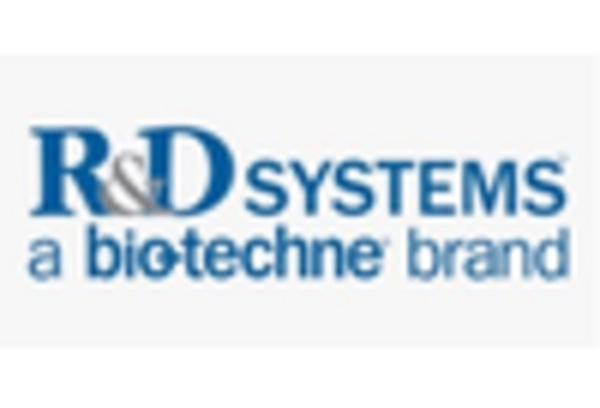Increasing Research Activities
The Isotype Control Antibody Market is experiencing a surge in research activities across various fields, including immunology, oncology, and infectious diseases. This increase is driven by the need for precise experimental controls in antibody-based assays. Researchers are increasingly recognizing the importance of isotype controls to validate their findings, which enhances the reliability of their results. According to recent data, the demand for isotype control antibodies has risen by approximately 15% annually, reflecting the growing emphasis on accuracy in scientific research. As laboratories expand their capabilities and invest in advanced technologies, the Isotype Control Antibody Market is likely to benefit from this trend, as more researchers seek to incorporate these essential tools into their workflows.
Rising Focus on Quality Control
Quality control is becoming increasingly critical in the Isotype Control Antibody Market, particularly in clinical and diagnostic settings. Regulatory bodies are emphasizing the need for stringent quality assurance measures to ensure the reliability of antibody-based assays. This focus on quality is prompting manufacturers to enhance their production processes and invest in rigorous testing protocols. As a result, the market for isotype control antibodies is expected to expand, with a projected growth rate of 12% over the next few years. The heightened awareness of quality standards is likely to drive demand for high-quality isotype controls, thereby reinforcing their importance in research and clinical applications within the Isotype Control Antibody Market.
Emergence of Personalized Medicine
The emergence of personalized medicine is reshaping the landscape of the Isotype Control Antibody Market. As healthcare shifts towards tailored treatments based on individual patient profiles, the need for precise and reliable antibody assays becomes paramount. Isotype controls play a vital role in ensuring the accuracy of these assays, which are essential for developing personalized therapies. The personalized medicine market is expected to grow at a rate of 15% per year, indicating a robust demand for isotype control antibodies. This trend suggests that the Isotype Control Antibody Market will likely see increased investment and innovation as companies strive to meet the evolving needs of personalized healthcare.
Advancements in Antibody Engineering
Innovations in antibody engineering are significantly influencing the Isotype Control Antibody Market. The development of monoclonal antibodies and recombinant technologies has led to the creation of highly specific isotype controls that are tailored for various applications. These advancements not only improve the quality of research but also expand the range of applications for isotype controls in diagnostics and therapeutics. The market for engineered antibodies is projected to grow at a compound annual growth rate of 10% over the next five years, indicating a robust demand for specialized isotype controls. As researchers continue to explore novel applications, the Isotype Control Antibody Market is poised for substantial growth, driven by these technological advancements.
Expansion of Diagnostic Applications
The expansion of diagnostic applications is a key driver for the Isotype Control Antibody Market. With the increasing prevalence of chronic diseases and the need for accurate diagnostic tools, isotype controls are becoming essential in various diagnostic assays. These controls help ensure the specificity and sensitivity of tests, which is crucial for patient outcomes. The diagnostic market is anticipated to grow significantly, with a projected increase of 8% annually. This growth is likely to create a higher demand for isotype control antibodies, as laboratories seek to enhance the reliability of their diagnostic processes. Consequently, the Isotype Control Antibody Market stands to benefit from this trend, as more diagnostic companies incorporate isotype controls into their testing protocols.


